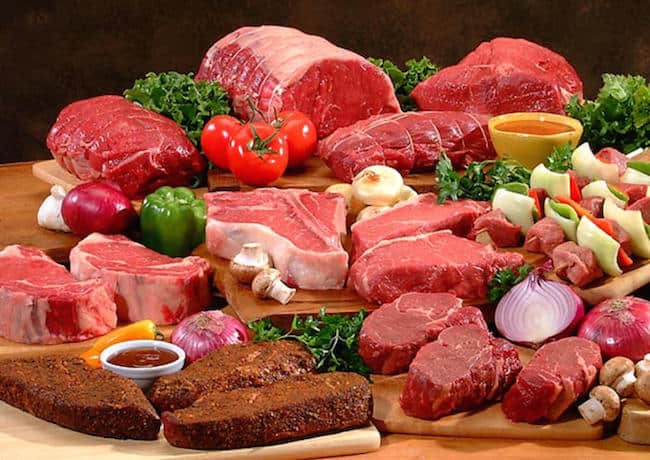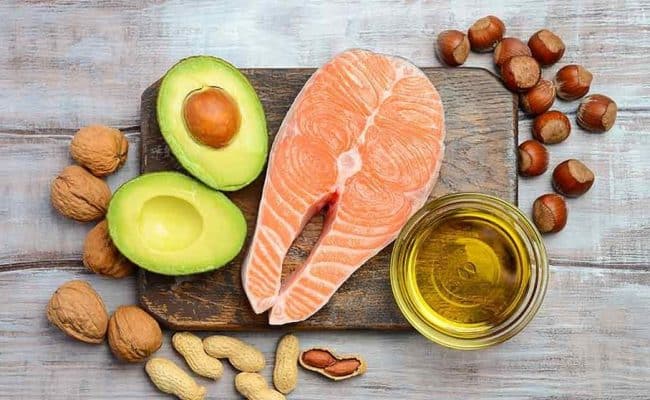
Higher protein diets have become very popular for weight loss and weight maintenance. Why is protein important for weight loss? Protein tends to make us feel full the longest compared to fats and carbohydrates. Proteins are large molecules that take a long time to digest. They also take some extra energy for digestion and absorption.
Here is some further explanation of why protein is important for weight loss and clearing up some confusion with protein and how it can impact weight balance.
High Satiety
Satiety is the feeling of being satisfied after a meal. Once the stomach is full, there is a signal sent to the brain once you are full and don’t need to keep eating. Satiety also means you won’t feel the need to start eating again shortly after a meal.
Protein and fiber are some of the most satiating nutrients meaning they tend to keep us full for a long time. This is a big reason for advocating protein intake during weight loss. Lower protein diets tend to not keep you as satisfied as higher protein diets, according a 2004 review article on the effects of a high protein diet.
Reduced food intake
The 2004 protein review article also suggests eating protein at meals may help lower subsequent food intake later. Therefore, having protein at all meal times, even breakfast, may be beneficial for lowering calorie intake throughout the day. There is some research to suggest protein timing, and not just solely protein amount, through the day may offer additional benefit for weight loss.
For example, instead of having a small amount of protein through the day then having a large serving of protein for dinner, which is fairly common, spread protein intake equally throughout the day. This may offer an additional benefit for weight loss.
Higher fat loss
Some research suggests higher protein diets may increase fat loss over other diets that are lower in protein. However, not all research results have shown this.
Do you have to eat high protein for weight loss?
There is research suggesting higher protein diets may be beneficial for weight loss. Does this mean you need to go on a higher protein diet if you want weight loss? Not necessarily. Keep in mind, people can lose weight on many different diets and varying macronutrient percentages.
A 2009 study in The New England Journal of Medicine had research participants randomly assigned to one of 4 diets that varied in carbohydrate, protein and fat levels. Research participants were on these diets for 2 years.
Weight loss did not significantly differ between groups after 2 years of weight loss. Researchers concluded that weight loss was possible with varying levels of protein, carbohydrates and fat.
What are you replacing the protein for?
What percent of calories should come from protein? For healthy adults, the recommended range of protein is 10-35% of calories. Most Americans get about 15% of calories from protein. Therefore, bumping up protein intake to 20-35% of calories is still within the recommended range for healthy adults.
Just by adding extra protein to your diet doesn’t mean you will automatically start losing weight. As with any nutrient, you can’t just focus on protein. What does the rest of your diet look like? Any advantages to bumping up protein intake may come if you substitute the protein for refined carbohydrates.
Pairing protein with fiber together at all meals may offer the biggest benefit for weight loss and overall health. Eating a diet high in animal fats and low in fiber is not the best for heart health. Make sure to keep protein intake balanced with other healthy components of a balanced diet.
Long term health
If you have any medical issues, make sure you speak with a healthcare professional if you are not sure how much protein you should have. There are not many research studies showing the outcome of long term high protein diets. Therefore, stay within the 10-35% of calorie recommendation until further research has shown otherwise.
High intake of high fat animal proteins may not be heart healthy, especially with a low intake of fiber. Try adding variety to your protein choices by trying vegetarian sources, grass fed meats, wild sea food and eggs. See also: How to eat more protein without meat.
Conclusion
Protein does have the highest satiety out of the three macronutrients, and this may have an advantage for weight loss. However, research studies have shown that weight loss can be manageable with varying levels of macronutrients. In other words, you do not have to drastically bump up your protein intake if you are trying to lose weight.
Another thought that may be beneficial along with total protein in the day is spreading out consumption equally instead of loading up on dinner. Consistent intake of protein through the day may be beneficial for lowering calorie intake through the day and may be beneficial for building muscle mass.
There is not a clear consensus from research studies on the effects of long term consumption of a high protein diet. Until more research is done, stay within the guidelines of 10-35% of calories coming from protein.
References used in this article










